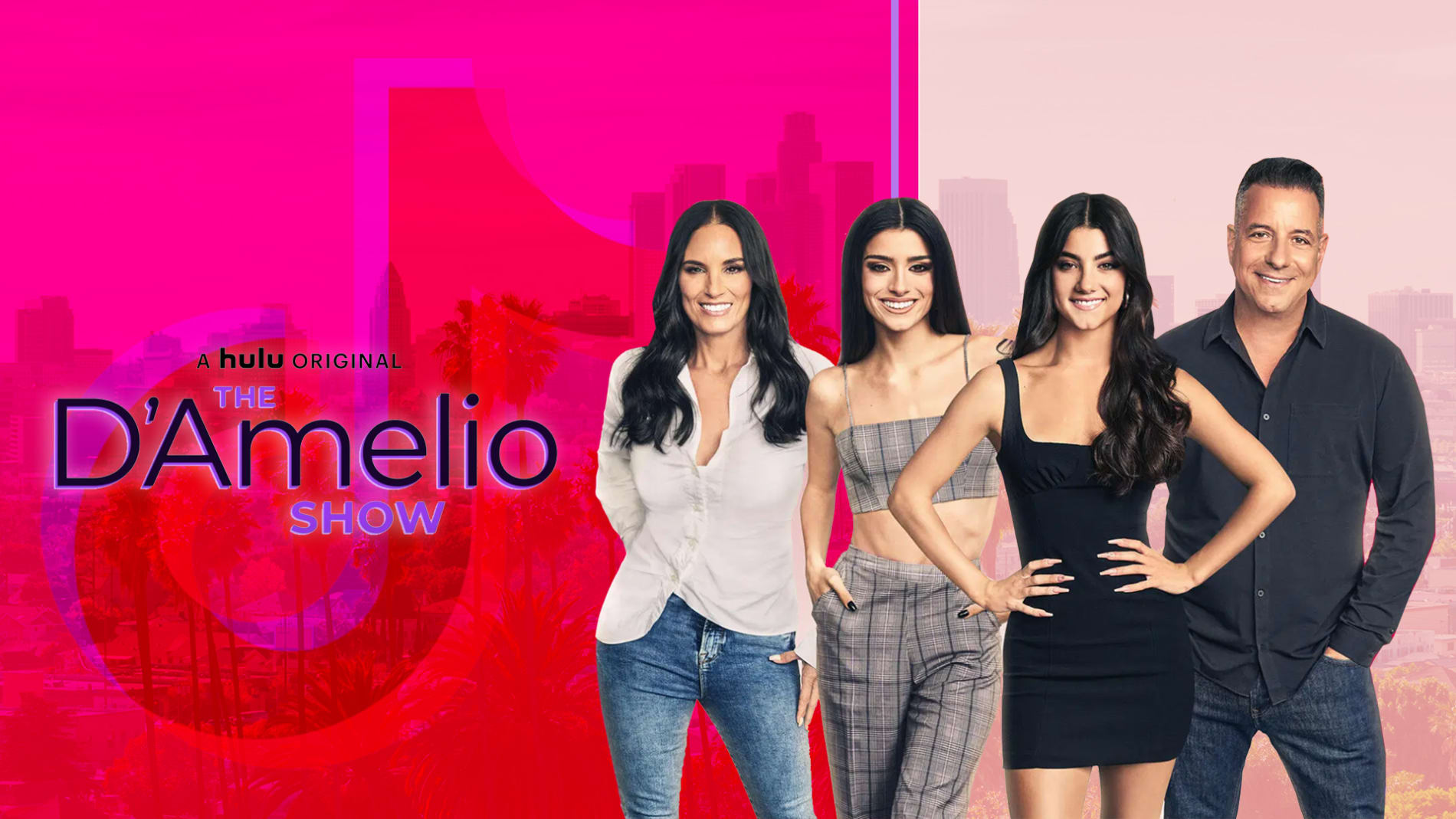
Read the Charter of Independence here.
By COBY RENKIN
Between the two of them, the D’Amelio sisters have conquered TikTok, launched a music career, signed brand deals, appeared in commercials, pioneered beauty and fashion lines – the list goes on. So, naturally, the next step for these queens of pop-culture was to launch a family reality show.
The D’Amelio Show follows the incredibly busy lives of sisters Charli and Dixie, and their parents Heidi and Marc D’Amelio as they navigate their new-found fame and the world of LA’s elite.
It’s clear in the first two minutes of the series that online attention is a major theme of the show, as comments superimposed over Charli’s morning routine quickly escalate from “Charli is such an amazing and kind person” to “can someone explain how she is TikTok famous?”. Throughout the series, comments go as far as wishing for her death.
As the first episode progresses, audiences are given more and more insight into the lives of Charli and Dixie, who were 16 and 19 when the show started filming. It is evident that the so often glamorously-portrayed lives of teenage stars in the media might not be all they are cracked up to be.
The D’Amelio Show covers the problematic consequences of teenage fame. In a world that encourages young people to get online, put themselves out there and build an audience, it’s refreshing and arguably necessary to highlight the not-so-glamorous ramifications of doing so. The show begs the question: is it worth it?
The toll taken by internet trolls has had a huge impact on both Charli and Dixie, who both suffer from poor mental health, including anxiety, which presents itself through severe physical symptoms such as nausea and hives. These symptoms are exacerbated by the negative feedback they receive online.
In one scene, Dixie sits down with her parents and doctor and details her experiences of feeling like a burden. She expresses feeling “guilty for being alive”, and how at times she thinks “I’ll just do everyone a favour”.
The ‘Queen of TikTok’ with more than 100 million followers, Charli is seen on more than one occasion experiencing severe panic attacks as a result of attacks by online trolls scrutinising everything from her makeup to the way she walks. On one particularly bad day, Charli cries to her mum behind a closed door sobbing “this is why I don’t go out, I don’t want to talk to anyone”.
Although this narrative feels a little repetitive after a few episodes, it also reinforces the significant role hate and constant criticism play in the girls’ daily lives. Scenes where Charli and Dixie discuss their anxiety, depression and problematic relationships with food with their close girlfriends – all internet stars to varying extents – reveal that they are not alone. Quen Blackwell, Avani Gregg and Madi Monroe all share similar experiences to Dixie and Charli, as a result of being in the spotlight.
The show proves hard to watch in places as the girls become hysterical, have panic attacks or experience severe anxiety. Charli’s schedule is not only filled with work, she is also a full-time high school student with little-to-no time to just be a teenager.
After she reaches breaking point and decides to take a week off, her workload is reduced to five hours, three days a week. The audience has been given an insight into this work and the pressure it carries, and it’s difficult to imagine that this reduction is enough. A 16 year-old full-time student working a minimum of 15 hours a week and never really getting to switch off just doesn’t sound sustainable.
It’s clear that even when Charli isn’t officially working, she’s affected by work.
When your work and your social life are both based online, it’d be almost impossible to separate the two. The pressure Charli feels is also unimaginable. She voices the responsibility she feels for the livelihoods of so many around her; “all of the people that work for my family put pressure on me, if I wanted to quit, well now they don’t have jobs”.
It’s hard to imagine that the criticism, poor mental health, extreme schedules and pressure are worth giving up anyone’s adolescence. This raises a lot of problematic questions for the audience to consider: Is any amount of money or fame worth losing a period of your life you can’t get back? Is an adoring following worth an equally-as-passionate hateful audience? Is it responsible for parents to encourage a life dependent on fame and money at such a young age?
The final episode of the series ends with reflections from each family member. Father to the girls, Marc D’Amelio, ends his contribution with “early on we had no idea what we were doing and navigating the waters of this new-found notoriety was difficult, but for the most part I think everyone is happier today than they were two years ago”.
As an outsider, it’s difficult to believe that this family is happier than they were two years ago. Are they genuinely happier, or do they just have more money and prominence?
Conversations around fame and the notion of ‘reaching for the stars’ associate these things with happiness and a full life, but The D’Amelio Show reveals an often-ignored truth that the two do not necessarily go hand in hand. It does more than provide a few hours of trashy reality TV.
If you or someone you know is struggling, please contact Lifeline on 13 11 14 or via this website.